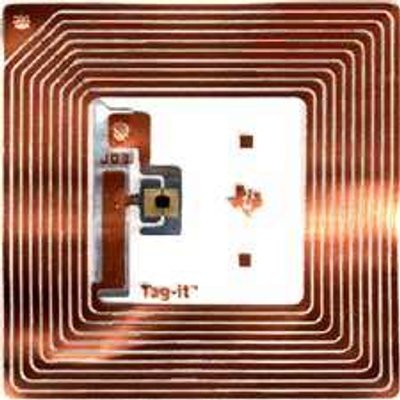January 27, 2008
Your future is in the (RFID) chips.
Chips, chips everywhere… anybody bring salsa? Wired posted this piece from the Associated Press about the possible (mis)uses of the burgeoning spychips.
Todd Lewan, AP National Writer:
-Microchips with antennas will be embedded in virtually everything you buy, wear, drive and read, allowing retailers and law enforcement to track consumer items - and, by extension, consumers - wherever they go, from a distance.
Some people may welcome the “conveniences” that these RFID tags may offer, but those “conveniences” come at a price… a loss of privacy.
With tags in so many objects, relaying information to databases that can be linked to credit and bank cards, almost no aspect of life may soon be safe from the prying eyes of corporations and governments, says Mark Rasch, former head of the computer-crime unit of the U.S. Justice Department.
By placing sniffers in strategic areas, companies can invisibly “rifle through people’s pockets, purses, suitcases, briefcases, luggage - and possibly their kitchens and bedrooms - anytime of the day or night,” says Rasch, now managing director of technology at FTI Consulting Inc., a Baltimore-based company.

Tag! You’re screwed. Companies, primarily retailers and manufacturers, are looking to use the chips for inventory control. They don’t have the personal information like the buyer’s name, but can be connected after purchase and the the personal information can be accessed and used… or abused.
Several companies have been granted patents for various RFID tag systems, and while they claim they’re not being used to track people, details of the patents say otherwise:
In 2006, IBM received patent approval for an invention it called, “Identification and tracking of persons using RFID-tagged items.” One stated purpose: To collect information about people that could be “used to monitor the movement of the person through the store or other areas.”
Once somebody enters a store, a sniffer “scans all identifiable RFID tags carried on the person,” and correlates the tag information with sales records to determine the individual’s “exact identity.” A device known as a “person tracking unit” then assigns a tracking number to the shopper “to monitor the movement of the person through the store or other areas.”
…
Another patent, obtained in 2003 by NCR Corp., details how camouflaged sensors and cameras would record customers’ wanderings through a store, film their facial expressions at displays, and time - to the second - how long shoppers hold and study items.Why? Such monitoring “allows one to draw valuable inferences about the behavior of large numbers of shoppers,” the patent states.
Then there’s a 2001 patent application by Procter & Gamble, “Systems and methods for tracking consumers in a store environment.” This one lays out an idea to use heat sensors to track and record “where a consumer is looking, i.e., which way she is facing, whether she is bending over or crouching down to look at a lower shelf.”
…
In the marketing world of today, she says, “data on individual consumers is gold, and the only thing preventing these companies from abusing technologies like RFID to get at that gold is public scrutiny.”
Perhaps the most telling statement was made by a person being surveyed about RFID use:
The next step down the slippery slope. Currently, it costs seven to fifteen cents to tag something, limiting their use to pallets and cases. But it may not be long before people wind up being tagged, mostly by their clothes:
So, how long will it be before you find an RFID tag in your underwear? The industry isn’t saying, but some analysts speculate that within a decade tag costs may dip below a penny, the threshold at which nearly everything could be chipped.
Everything… including people. Will we be forced to have our children tagged, in the womb? Will the chip-happiness of these companies cause a major surge in faraday clothing, clothing designed to block RFID radio waves?
Hopefully, we will never come to human tagging… except for those who need to be tracked. Even better would be that those companies that have leveraged their futures on RFID will crash and burn as anti-RFID backlash cost them. Until then, you might want to start investing in a faraday wardrobe… just in case.




